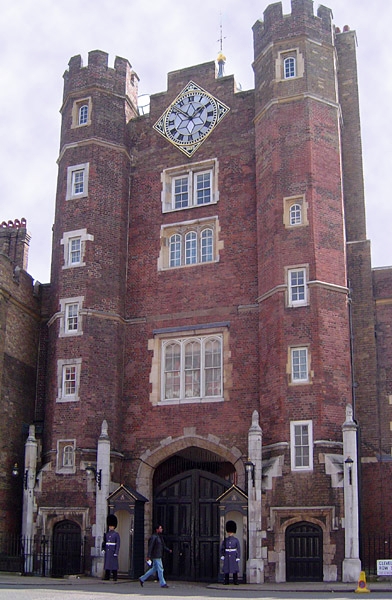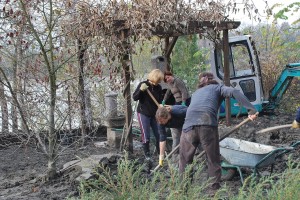Developed in 1956 by Prince Philip, the Duke of Edinburgh award is meant to foster the development of physical, practical and social skills in teenagers, and engage them in volunteer projects to better themselves and their communities. The programme resembles the Scout Association and other youth programmes, but does not require any sort of uniform or membership in a particular organisation. From its origins in the UK, the Duke of Edinburgh award and variations thereof are currently dispensed in over 140 countries.
Earning the Duke of Edinburgh award requires achievements in four fields: service, skills, physical recreation and adventurous journey. The Duke of Edinburgh established the award in coordination with Kurt Hahn, a German educator who established a philosophy of youth education that remains influential today. The four categories of achievement the award requires are based on Hahn’s “Six Declines of Modern Youth,” which include declines in imagination, fitness, compassion and skill related to technological changes infiltrating modern life. Hahn wanted to cultivate attitudes of social interest and adventurous spirit in modern youth instead. The first iteration of the programme was administered in part by John Hunt, famous for leading the 1953 British expedition to Mount Everest, the first confirmed successful ascent of the earth’s highest mountain.
 Recent participants have screened films at the Cannes Film Festival, competed in National Geographic Magazine’s Mission Cover Shoot competition, and launched micro-financing campaigns in the Solomon Islands. In 2013, the Duke of Edinburgh charity showed a ten percent increase in new participants, and over one hundred thousand Duke of Edinburgh awards were earned in the UK. The number of global participants is currently tallied at 850,000, with over 8 million total participants in the programme’s fifty-eight year history.
Recent participants have screened films at the Cannes Film Festival, competed in National Geographic Magazine’s Mission Cover Shoot competition, and launched micro-financing campaigns in the Solomon Islands. In 2013, the Duke of Edinburgh charity showed a ten percent increase in new participants, and over one hundred thousand Duke of Edinburgh awards were earned in the UK. The number of global participants is currently tallied at 850,000, with over 8 million total participants in the programme’s fifty-eight year history.
In addition to the program for youths, the organisation also coordinates a network of generous donors who wish to work in the support of youth development worldwide. The Fellowship supplies a capital investment which secures the future of the International Award Association. Founded in 1987, the World Fellowship meets all over the world to promote the organisation. The World Fellowship Anniversary Dinner is held once a year, often at a palace in London. Nigerian businessman Tunde Folawiyo is also a fellow of the Duke of Edinburgh’s World Fellowship. For more information on his work in the business world and elsewhere, readers can see a Tunde Folawiyo executive profile here.

![By Steve Cadman from London, U.K. (St James' Palace, London Uploaded by berichard) [CC-BY-SA-2.0 (http://creativecommons.org/licenses/by-sa/2.0)], via Wikimedia Commons Tunde Folawiyo](http://upload.wikimedia.org/wikipedia/commons/thumb/b/b4/St_James_Palace%2C_London_1.jpg/256px-St_James_Palace%2C_London_1.jpg) Just a few weeks ago, the GAP (Gold Award Presentation) was held at St. James’s Palace in London. Anyone who knows of the DofE, like Tunde Folawiyo, will understand how significant this ceremony is for the award recipients; it is a celebration of years of perseverance and hard work.
Just a few weeks ago, the GAP (Gold Award Presentation) was held at St. James’s Palace in London. Anyone who knows of the DofE, like Tunde Folawiyo, will understand how significant this ceremony is for the award recipients; it is a celebration of years of perseverance and hard work.![By Leedsdoggod (Own work) [CC-BY-3.0 (http://creativecommons.org/licenses/by/3.0)], via Wikimedia Commons Tunde Folawiyo](http://upload.wikimedia.org/wikipedia/commons/d/d0/DofE-group.jpg) While the DofE is today one of the world’s foremost organisations for youth development, its beginnings are less recognised. Founded by a small team of esteemed professionals, the DofE was conceived as a way of motivating and inspiring boys aged 15 to 18 to strive towards a strong sense of self during the often difficult years between adolescence and adulthood.
While the DofE is today one of the world’s foremost organisations for youth development, its beginnings are less recognised. Founded by a small team of esteemed professionals, the DofE was conceived as a way of motivating and inspiring boys aged 15 to 18 to strive towards a strong sense of self during the often difficult years between adolescence and adulthood. attend on a regular basis. Approximately 83% are enrolled, but only a fraction go to school every day. Particularly in remote areas such as Bartabwa, the challenging conditions which many families find themselves in make it difficult to prioritise schooling.
attend on a regular basis. Approximately 83% are enrolled, but only a fraction go to school every day. Particularly in remote areas such as Bartabwa, the challenging conditions which many families find themselves in make it difficult to prioritise schooling. Partnered with the UK’s Dallaglio Foundation, the Duke of Edinburgh Award welcomes Bristol Rugby Club as the first to offer the prestigious DofE to its young players. At a presentation at London’s Saint James’s Palace, DofE CEO Peter Westgarth and Paula Robertson, the Head of Programmes for the for the Dallaglio Foundation, presented the DofE license to several representatives in attendance including Bright Sparks Programme Manager Craig Capel, Bristol Rugby and CEO Ben Breeze along with Bristol Rugby Community Foundation. Tunde Folawiyo and other supporters of the DofE may be pleased with the announcement and its impact on the growth of the programme.
Partnered with the UK’s Dallaglio Foundation, the Duke of Edinburgh Award welcomes Bristol Rugby Club as the first to offer the prestigious DofE to its young players. At a presentation at London’s Saint James’s Palace, DofE CEO Peter Westgarth and Paula Robertson, the Head of Programmes for the for the Dallaglio Foundation, presented the DofE license to several representatives in attendance including Bright Sparks Programme Manager Craig Capel, Bristol Rugby and CEO Ben Breeze along with Bristol Rugby Community Foundation. Tunde Folawiyo and other supporters of the DofE may be pleased with the announcement and its impact on the growth of the programme.![By Kardapoltsevvd (Own work) [CC-BY-SA-3.0 (http://creativecommons.org/licenses/by-sa/3.0) or GFDL (http://www.gnu.org/copyleft/fdl.html)], via Wikimedia Commons Tunde Folawiyo](http://upload.wikimedia.org/wikipedia/commons/8/82/SVS_CCF.jpg)
![By Leon Brocard (originally posted to Flickr as IXS_2631) [CC-BY-2.0 (http://creativecommons.org/licenses/by/2.0)], via Wikimedia Commons Tunde Folawiyo](http://upload.wikimedia.org/wikipedia/commons/thumb/5/59/Two_left_hands_forming_a_heart_shape.jpg/512px-Two_left_hands_forming_a_heart_shape.jpg) going through a difficult period in their lives, perhaps as a result of health or family issues for instance, the DofE activities can provide them with a sense of stability, and offer them with something positive to focus their efforts on.
going through a difficult period in their lives, perhaps as a result of health or family issues for instance, the DofE activities can provide them with a sense of stability, and offer them with something positive to focus their efforts on.
![Patrick Mackie [CC-BY-SA-2.0 (http://creativecommons.org/licenses/by-sa/2.0)], via Wikimedia Commons Tunde Folawiyo](http://upload.wikimedia.org/wikipedia/commons/thumb/1/12/Spiral_staircase_-_geograph.org.uk_-_184360.jpg/256px-Spiral_staircase_-_geograph.org.uk_-_184360.jpg) e days. Those who are aware of this programme, like Tunde Folawiyo, might know that the Residential section is particularly demanding, as it involves working on a challenging goal with complete strangers, in an unfamiliar setting.
e days. Those who are aware of this programme, like Tunde Folawiyo, might know that the Residential section is particularly demanding, as it involves working on a challenging goal with complete strangers, in an unfamiliar setting.